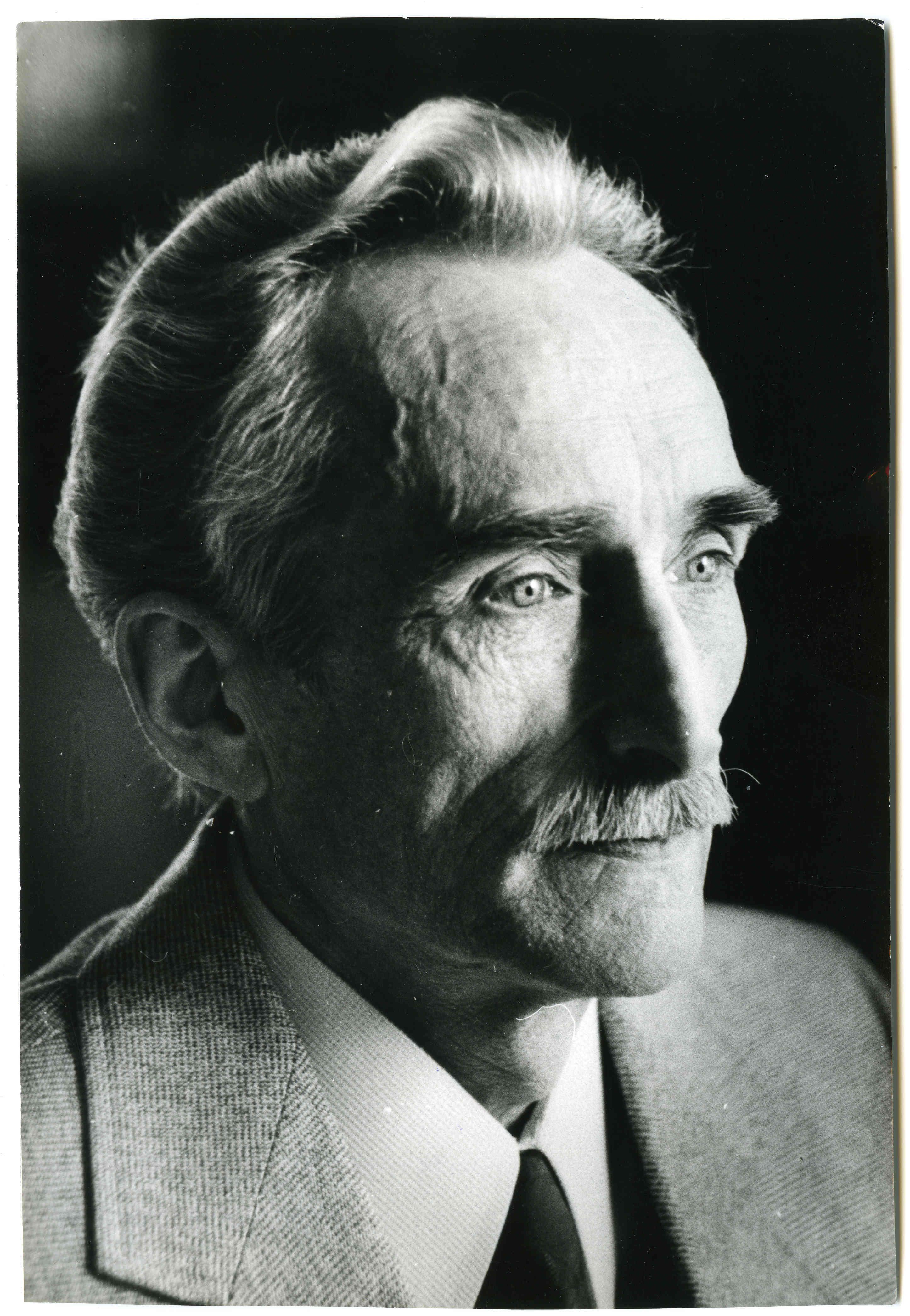
Harald Suislepp
Harald Suislepp (11 VI 1921 – 21 IX 2000) was an Estonian poet, essayist and journalist.
He was born at Kunda as the son of an accountant and attended Eidapere and Kunda-Malla primary schools. During World War II, he served in the Red Army. After the war, he worked as a journalist; from 1952–1955, studied at the journalism department of the Party School of the Central Committee of the Communist Party of Estonia, from 1955–66 worked for the newspapers Säde and Sirp ja Vasar, the magazine Pikker and the literary journal Looming. From 1951–1990, he was a member of the Communist Party of the Soviet Union. Suislepp was a member of the Estonian Writers’ Union from 1958. From 1966, he was a freelance writer in Tallinn, in summers he lived at Kassari on Hiiumaa Island. He was the husband of the youth writer Silvia Rannamaa.
Suislepp made his debut with poems in the press in 1936. In the late 1940s and early 1950s, he participated in the activities of the Tallinn Young Authors Association. His first poetry collection Tedretähed (‘Freckles’) appeared in 1958. His poetry collection Suure Vankri jälgedes (‘Following the Big Dipper’, 1963) received general recognition.
Like in many poets of his generation, Suislepp’s poetry altered from the depiction of the atrocities of the war and optimistic dynamism in the direction of greater thoughtfulness and more concise wording. Characteristic features of Suislepp’s creation are a sense of contemporaneity and civic dignity, a snug chuckle that is humorous rather than satirical. He has written lyrical poetry about sentiments and nature, epigrams, long poems, and three plays in verse. With his long poems Aeg tuleb maa ja mere peal… (‘Time Will Come Upon the Sea and Land’, autobiographical poem, 1968), Parool KKK. Poistepoeem (‘Password KKK. Boys’ Poem’, 1968) and Peremärk ajas, inimeses, maailmas (‘The Family Sign in Time, People, the World’, 1985) Suislepp made an essential contribution to the Estonian tradition of long poems.
He also published numerous humorous pieces and topical satires and, in the 1970s–1980s, made speeches and wrote articles on writers’ freedom of creativity. In 1975, Suislepp published a selection of critical articles, Loominguline logiraamat (‘Creative Logbook’). Towards the end of his life, he described the circumstances of everyday life in newly independent Estonia in humorously satirical verse collections Köögertali kojutulek: lamba- ja ahviaasta päevaraamat (‘Köögertal’s Homecoming: Diary of the Years of Sheep and Monkey’) and Pung ja Pegasus (‘Bud and Pegasus’, 1998).
L. P. (Translated by I. A.)
Books in Estonian
Poetry
Tedretähed. Tallinn: Eesti Riiklik Kirjastus, 1958. 76 lk.
Suure Vankri jälgedes. Tallinn: Eesti Riiklik Kirjastus, 1963. 111 lk.
Tuulest, luulest ja tuuleluulest. Tallinn: Eesti Raamat, 1971. 104 lk.
Lingukivist linavästrikuni. Tallinn: Eesti Raamat, 1976. 92 lk.
Kaksikute tähtkujus: luulet 1936–1976. Tallinn: Eesti Raamat, 1978. 180 lk.
Päikesesoe maakivi. Tallinn: Eesti Raamat, 1989. 117 lk.
Köögertali kojutulek: lamba- ja ahviaasta päevaraamat. Tallinn: Eesti Raamat, 1994. 79 lk.
Pung ja Pegasus. Tallinn: Kupar, 1998. 82 lk.
Long poems
Aeg tuleb maa ja mere peal… Poeem. Tallinn: Eesti Raamat, 1968. 79 lk.
Parool KKK. Poiste poeem. Tallinn: Eesti Raamat, 1968. 48 lk.
Peremärk ajas, inimeses, maailmas. Tallinn: Eesti Raamat, 1985. 27 lk.
Plays in verse
Kolme Tulbi tänav ehk Mu tütar on Torontos. Tallinn: Eesti Raamat, 1965. 83 lk.
Ja sõna sai tinaks… Tallinn: Eesti Raamat, 1969. 104 lk.
Kolme tulbi tänava kolm lugu: värssnäidendid. Tallinn: Eesti Raamat, 1981. 224 lk.
Prose
Kellakägu: jutustusi ja luuletusi. Tallinn: Eesti Raamat, 1966. 208 lk.
Criticism
Loominguline logiraamat. Tallinn: Eesti Raamat, 1975. 276 lk.



